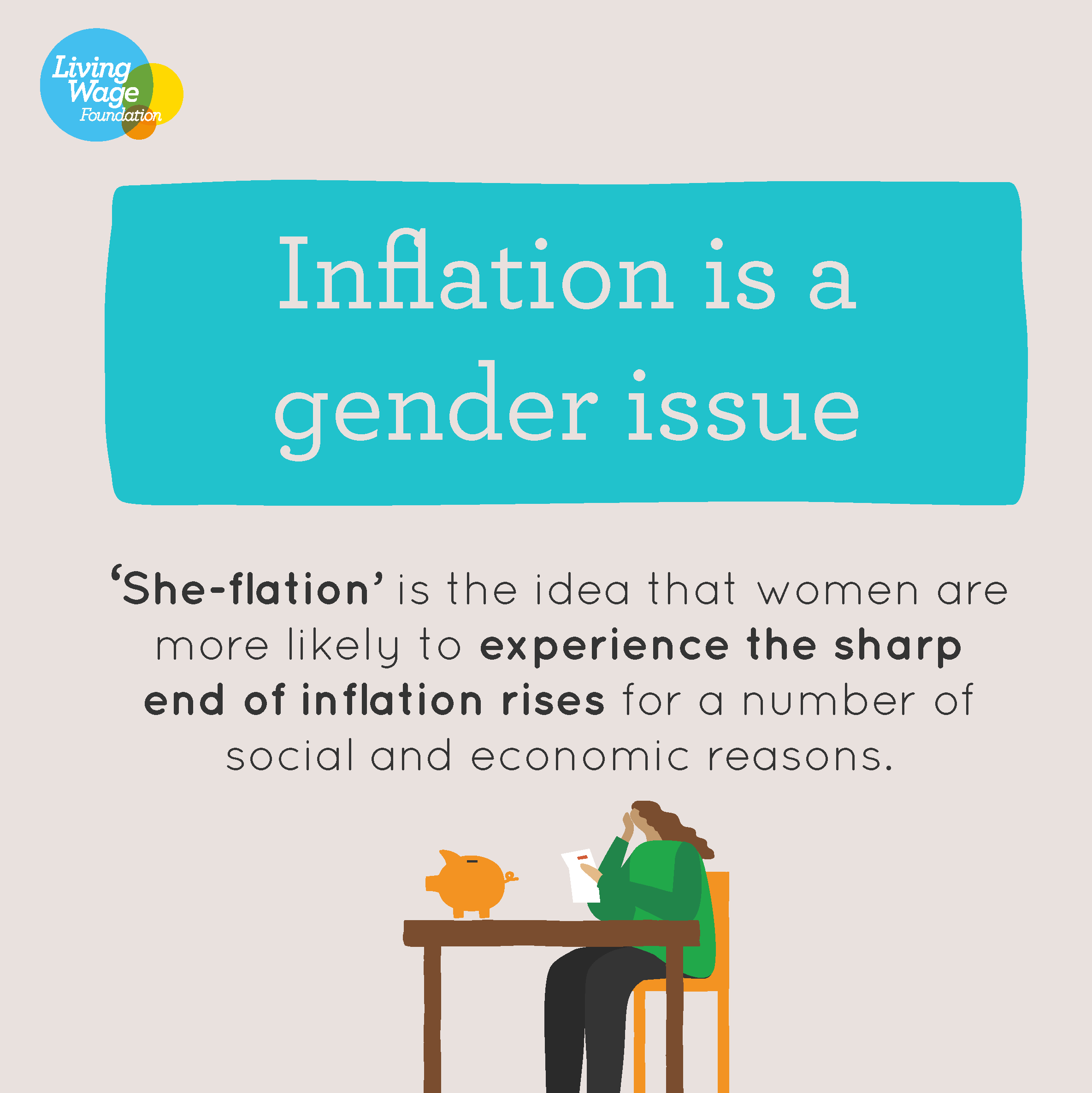Women are disproportionately affected by low pay and spiralling living costs according to research by the Living Wage Foundation.
This International Women's Day our research focused on the state of the gender pay gap in the UK today. Overall, a fifth of women in work (20.4%) are paid below the real Living Wage, approximately 2.9m people, compared to 14 percent of men (1.9 million). As a result, jobs held by women account for almost 60 per cent (59.7%) per cent of all jobs paid below the Living Wage.
Our research demonstrates that women are more likely to be in low paid jobs and have been hit hardest by the sharp rise in inflation. Analysis of the ONS' Annual Survey of Hours and Earnings has found that in a range of sectors including care work, the arts entertainment and recreation, as well as accommodation and food services, low paid roles are predominantly done by women.
In social care, where women outnumber men four to one, 71 percent of care workers in the independent care sector are paid less than the real Living Wage. Turnover rates in adult social care were 28.5 percent in 2020-21, equating to around 410,000 leavers in a 12-month period.
Impact of "she-flation"
Further research has shown that spikes in inflation have a more significant impact on women compared to men due to their prevalence in low paid roles and spending commitments. Women more commonly spend more of their income on non-durable household goods, for example food and cleaning products, which are typically more susceptible to inflation-induced volatility. Our Life on Low Pay polling of employee's earning below the real Living Wage, found that during a period of unprecedented rises to the cost-of-living 42 percent of low paid women had fallen behind on household bills,

compared to 35 percent of low paid men and that 35 percent of low paid women had skipped meals regularly for financial reasons, compared to 29 percent of low paid men.
Gendered expectations such as disproportionate responsibility for household shopping also means many women notice variations in prices and feel the stresses of inflation more acutely.2 This is backed up by Life on Low Pay polling which found: 50 percent of low paid women said their levels of pay negatively affected their levels of anxiety, compared to 38 percent of low paid men; and that 48 percent of low paid women said their levels of pay negatively impacted their overall quality of life, compared to 36 percent of low paid men.
Katherine Chapman, Director of the Living Wage Foundation says:
"Our research demonstrates yet again the harsh impact of low pay on the millions of women that make up the bulk of many low paid industries such as health and social care. These women have been on the front line of a global health crisis and are now struggling to make ends meet in the face of an unfolding cost of living crisis on wages that don't provide enough to live on. Low pay is a gendered issue.
Over 9,000 employers across the UK have accredited with the Living Wage Foundation to protect all their staff from the trappings of low pay. Crucially this includes regular contracted staff like cleaners who are often women. This year's International Women's Day theme is 'Gender equality today for a sustainable tomorrow' - when it comes to addressing gender inequality one action employers can take today is to sign up to the Living Wage."
